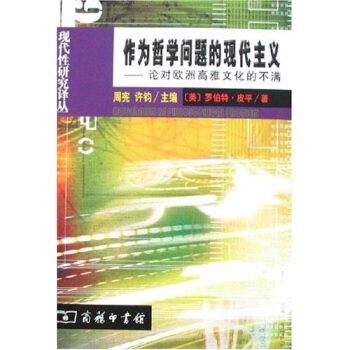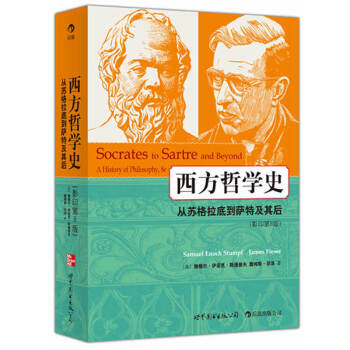

具体描述
看点一:兼采众长
作者采取客观的立场,写法吸纳了诸种哲学史著述方式的长处和特点,既以轻松的笔法勾勒出哲学史的轮廓,又注重其间思想实质的联系,十分适合初阶读者。
看点二:历史视角
本书对哲学史有全面的把握,将思想史料转化为条理清晰的表述,突出了哲学史的发展历程,有助于了解西方哲学的来龙去脉。同时立足当下,也用适当篇幅介绍了当代哲学。
看点三:亲切易读
本书不断修订,内容明白晓畅,语言可读性强、易于理解。读者可通过本书阅读精妙的英文,也可和中译本相对照,深化对哲学史的认识。内容简介《西方哲学史:从苏格拉底到萨特及其后》自1966年初版以来,历经七次修订,成为英语世界畅销的哲学史入门教材。它紧跟当代哲学和哲学史研究的新发展,是一部既植根传统又向当代开放的哲学史,堪称当代西方哲学史的主流和典范之作。
作者以长短适当的篇幅,把西方两千多年的哲学思想作了清晰的展示。它兼采国内外书写哲学史的写法之长,善于抓住哲学家的主要思想实质进行阐述,态度客观,材料翔实且清晰明了,文笔平正而不失生动,能让读者对西方哲学的总体发展有准确的把握,为读者提供了一个简洁清晰、轻松易懂的哲学读本。
新第8版将旧有版本中的陈旧元素一一剔除,代之以前沿的学术观点。作者对西方哲学史出色的驾驭功力、亲和的著述方式和地道的语言,这些在影印版中都将保留并呈现。作者简介撒穆尔·伊诺克·斯通普夫(Samuel Enoch Stumpf,1918—1998),芝加哥大学哲学博士、哈佛大学福特研究员、牛津大学洛克菲勒研究员。他担任万德比尔特大学哲学系主任有15年之久,并曾出任爱荷华的康奈尔学院的校长。斯通普夫也是万德比尔特大学的法律哲学教授和医学哲学教授,在哲学、医学伦理学和法理学等领域均颇有建树。
詹姆斯·菲泽(James Fieser),普渡大学博士,现任田纳西大学哲学教授。著述有《道德哲学史》(Moral Philosophy through the Ages,2001),与人合著有《哲学入门》(A Historical Introduction to Philosophy,2002)。菲泽还与人合编《世界宗教经典》(Scriptures of the World’s Religions)一书,并创建了《哲学网络百科全书》(Internet Encyclopedia of Philosophy)。精彩书评(本书)对于一般读者来说不失为一部精炼而又明白易晓的哲学史教本,尤其是书中后部分(即有关20世纪的西方哲学)是过去一般的哲学史教本甚少涉及的,对读者颇为便利。
——何兆武,著名翻译家,思想文化史学者
斯通普夫和菲泽所著《西方哲学史》至今已出第八版,看来颇受欢迎。作者避免了一般哲学写作的弊端,结合时代与当今哲学的发展,利用其对哲学敏锐而深刻的思考,成就了这样一本长达500余页、详尽但不失情趣的哲学读本。
——赵汀阳,中国社会科学院哲学研究所研究员
我曾在2005年出版的该书第七版中译本序中预言:“可以预料,只要作者健在,隔几年就会有一部新的哲学史问世。史家的思想紧紧地与时代的进展平行,这正是哲学史家所努力追求的一种境界。”目前,这一预言已被证实。
——邓晓芒,武汉大学教授目录出版前言
中文版序
第八版译者序
第七版译者序
关于作者
前 言
Part One ANCIENT GREEK PHILOSOPHY
一部分 古希腊哲学
Chapter 1 Socrates' Predecessors 苏格拉底的前辈
What is Permanent in Existence? 什么东西是持存的?
Thales 泰勒斯
Anaximander 阿那克西曼德
Anaximenes 阿那克西米尼
The Mathematical Basis of All Things 万物的数学基础
Pythagoras 毕达哥拉斯
Attempts to Explain Change 解释变化的尝试
Heraclitus 赫拉克利特
Parmenides 巴门尼德
Zeno 芝 诺
Empedocles 恩培多克勒
Anaxagoras 阿那克萨戈拉
The Atomists 原子论者
Atoms and the Void 原子和虚空
Theory of Knowledge and Ethics 知识理论和伦理学
Chapter 2 The Sophists and Socrates 智者派与苏格拉底
The Sophists 智者派
Protagoras 普罗泰戈拉
Gorgias 高尔吉亚
Thrasymachus 塞拉西马柯
Socrates 苏格拉底
Socrates' Life 苏格拉底的生平
Socrates as a Philosopher 作为哲学家的苏格拉底
Socrates' Theory of Knowledge: Intellectual Midwifery
苏格拉底的知识理论:思想的助产术
Socrates' Moral Thought 苏格拉底的道德思想
Socrates' Trial and Death 苏格拉底的审判和死亡
Chapter 3 Plato 柏拉图
Plato's Life 柏拉图的生平
Theory of Knowledge 知识理论
The Cave 洞 穴
The Divided Line 线 段
Theory of the Forms 理念论
Moral Philosophy 道德哲学
The Concept of the Soul 灵魂概念
The Cause of Evil: Ignorance or Forgetfulness 恶的原因:无知或遗忘
Recovering Lost Morality 恢复失去的道德
Virtue as Fulfillment of Function 作为功能之实现的德性
Political Philosophy 政治哲学
The State as a Giant Person 巨人般的国家
The Philosopher-King 哲学王
The Virtues in the State 国家中的德性
The Decline of the Ideal State 理想国的衰败
View of the Cosmos 宇宙观
Chapter 4 Aristotle 亚里士多德
Aristotle's Life 亚里士多德的生平
Logic 逻辑学
The Categories and the Starting Point of Reasoning 范畴和推理的起点
The Syllogism 三段论
Metaphysics 形而上学
The Problem of Metaphysics Defined 界定形而上学的问题
Substance as the Primary Essence of Things 作为事物的首要本质的实体
Matter and Form 质料和形式
The Process of Change: The Four Causes 变化的过程:四因
Potentiality and Actuality 潜能与现实
The Unmoved Mover 不被推动的推动者
The Place of Humans: Physics, Biology, and Psychology
人的地位:物理学、生物学和心理学
Physics 物理学
Biology 生物学
Psychology 心理学
Ethics 伦理学
Types of "Ends" "目的"的类型
The Function of Human Beings 人的功能
Happiness as the End 作为目的的幸福
Virtue as the Golden Mean 作为中道的德性
Deliberation and Choice 审慎和选择
Contemplation 沉 思
Politics 政治学
Types of States 国家类型
Differences and Inequalities 差异与不平等
Good Government and Revolution 好的政体和革命
Philosophy of Art 艺术哲学
Part Two HELLENISTIC AND MEDIEVAL PHILOSOPHY
第二部分 希腊化时期和中世纪的哲学
Chapter 5 Classical Philosophy after Aristotle
亚里士多德以后的古代哲学
Epicureanism 伊壁鸠鲁主义
Physics and Ethics 物理学与伦理学
God and Death 神和死亡
The Pleasure Principle 快乐原则
Pleasure and Social Justice 快乐与社会正义
Stoicism 斯多噶主义
Wisdom and Control versus Pleasure 相对于快乐的智慧和控制
Stoic Theory of Knowledge 斯多噶学派的知识论
Matter as the Basis of All Reality 作为一切实在之基础的物质
God in Everything 万物中的神
Fate and Providence 命运和天意
Human Nature 人的本性
Ethics and the Human Drama 伦理学和人的戏剧
The Problem of Freedom 自由的问题
Cosmopolitanism and Justice 世界主义和正义
Skepticism 怀疑主义
The Search for Mental Peace 寻求心灵的安宁
Evident versus Nonevident Matters 明显的事情和不明显的事情
Plotinus 普罗提诺
Plotinus's Life 普罗提诺的生平
God as the One 作为太一的神
The Metaphor of Emanation 流溢的隐喻
Salvation 得 救
Chapter 6 Augustine 奥古斯丁
Augustine's Life 奥古斯丁的生平
Human Knowledge 人类知识
Faith and Reason 信仰与理性
Overcoming Skepticism 克服怀疑论
Knowledge and Sensation 知识与感觉
The Theory of Illumination 光照论
God 上 帝
The Created World 被造世界
Creation from Nothing 从无中创世
The Seminal Principles 种 质
Moral Philosophy 道德哲学
The Role of Love 爱的作用
Free Will as the Cause of Evil 作为恶的原因的自由意志
Justice 正 义
History and the Two Cities 历史和两座城
Chapter 7 Philosophy in the Early Middle Ages
中世纪早期的哲学
Boethius 波埃修
Boethius's Life 波埃修的生平
The Consolation of Philosophy 哲学的慰藉
The Problem of Universals 共相的问题
Pseudo-Dionysius 伪狄奥尼修斯
Knowledge of God 对上帝的知识
Erigena 约翰·司各脱·爱留根纳
Erigena's Life 约翰·司各脱·爱留根纳的生平
The Division of Nature 自然的区分
New Solutions to the Problem of Universals 解决共相问题的新方法
Odo and Guillaume: Exaggerated Realism 奥多和威廉姆:极端实在论
Roscellinus: Nominalism 洛色林:唯名论
Abelard: Conceptualism or Moderate Realism
阿伯拉尔:概念论或温和实在论
Anselm's Ontological Argument 安瑟伦的本体论证明
Anselm's Realism 安瑟伦的实在论
The Ontological Argument 本体论证明
Gaunilon's Rebuttal 高尼罗的反驳
Anselm's Reply to Gaunilon 安瑟伦对高尼罗的回答
Faith and Reason in Muslim and Jewish Thought
穆斯林和犹太思想中的信仰和理性
Avicenna 阿维森纳
Averro s 阿威罗伊
Moses Maimonides 摩西·迈蒙尼德
Chapter 8 Aquinas and His Late Medieval Successors
阿奎那和他的中世纪晚期的继承者
Aquinas's Life 阿奎那的生平
Bonaventura and the University of Paris 波那文都和巴黎大学
Philosophy and Theology 哲学与神学
Faith and Reason 信仰与理性
Proofs of God's Existence 上帝存在的证明
Proofs from Motion, Efficient Cause, and Necessary Being
从运动、致动因以及必然存在出发的证明
Proofs from Perfection and Order 从完满性和秩序出发的证明
Assessment of the Proofs 对证明的评价
Knowledge of God's Nature 对上帝本性的知识
The Negative Way (Via Negativa) 否定的方式
Knowledge by Analogy 类比的知识
Creation 创 世
Is the Created Order Eternal? 被创造的秩序是永恒的吗?
Creation out of Nothing 无中创世
Is This the Best Possible World? 这是好的可能世界吗?
Evil as Privation 作为缺乏的恶
The Range of Created Being: The Chain of Being
被创造的存在的等级排列:存在之链
Morality and Natural Law 道德和自然法
Moral Constitution 道德的构成
Natural Law 自然法
The State 国 家
Human Nature and Knowledge 人的本性和知识
Human Nature 人的本性
Knowledge 知 识
Scotus, Ockham, and Eckhart 司各脱、奥康以及艾克哈特
Voluntarism 唯意志论
Nominalism 唯名论
Mysticism 神秘论
Part Three EARLY MODERN PHILOSOPHY
第三部分 近代早期的哲学
Chapter 9 Philosophy during the Renaissance
文艺复兴时期的哲学
The Closing of the Middle Ages 中世纪的结束
Humanism and the Italian Renaissance
人文主义和意大利文艺复兴运动
Pico 皮 科
Machiavelli 马基雅维利
The Reformation 宗教改革
Luther 路 德
Erasmus 伊拉斯谟
Skepticism and Faith 怀疑论和信仰
Montaigne 蒙 田
Pascal 帕斯卡
The Scientific Revolution 科学革命
New Discoveries and New Methods 新的发现和新的方法
Modern Atomism 近代原子论
Bacon 弗朗西斯·培根
Bacon's Life 培根的生平
Distempers of Learning 学术的病状
Idols of the Mind 心灵的假相
The Inductive Method 归纳的方法
Hobbes 托马斯·霍布斯
Hobbes's Life 霍布斯的生平
Influence of Geometry upon Hobbes's Thought 几何学对霍布斯思想的影响
Bodies in Motion: The Object of Thought 运动中的物体:思想的对象
Mechanical View of Human Thought 关于人的思想的机械论观点
Political Philosophy and Morality 政治哲学与道德
The State of Nature 自然状态
Obligation in the State of Nature 自然状态中的义务
The Social Contract 社会契约
Civil Law versus Natural Law 民法对自然法
Chapter 10 Rationalism on the Continent 大陆理性主义
Descartes 笛卡尔
Descartes's Life 笛卡尔的生平
The Quest for Certainty 对确定性的追求
Descartes's Method 笛卡尔的方法
Methodic Doubt 作为方法的怀疑
The Existence of God and External Things 上帝和外部事物的存在
Mind and Body 心灵和身体
Spinoza 斯宾诺莎
Spinoza's Life 斯宾诺莎的生平
Spinoza's Method 斯宾诺莎的方法
God: Substance and Attribute 上帝:实体和属性
The World as Modes of God's Attributes 世界作为上帝属性的样式
Knowledge, Mind, and Body 知识、心灵和身体
Ethics 伦理学
Leibniz 莱布尼茨
Leibniz's Life 莱布尼茨的生平
Substance 实 体
God's Existence 上帝的存在
Knowledge and Nature 知识和自然
Chapter 11 Empiricism in Britain 英国经验主义
Locke 洛 克
Locke's Life 洛克的生平
Locke's Theory of Knowledge 洛克的知识理论
Moral and Political Theory 洛克的道德和政治理论
Berkeley 贝克莱
Berkeley's Life 贝克莱的生平
The Nature of Existence 存在的本质
Matter and Substance 物质和实体
Hume 休 谟
Hume's Life 休谟的生平
Hume's Theory of Knowledge 休谟的知识理论
What Exists External to Us? 什么存在于我们之外?
Ethics 伦理学
Chapter 12 Enlightenment Philosophy 启蒙哲学
Deism and Atheism 自然神论和无神论
English Deism 英国自然神论
French Philosophes 法国哲人派
Rousseau 卢 梭
Rousseau's Life 卢梭的生平
The Paradox of Learning 学问的悖论
The Social Contract 社会契约
Reid 锐 德
Reid's Life 锐德的生平
Criticism of the Theory of Ideas 对观念论的批判
Commonsense Beliefs and Direct Realism 常识信念与直接实在论
Part Four LATE MODERN AND NINETEENTHCENTURY PHILOSOPHY
第四部分 近代晚期和19 世纪哲学
Chapter 13 Kant 康 德
Kant's Life 康德的生平
The Shaping of Kant's Problem 康德问题的形成
Kant's Critical Philosophy and his Copernican Revolution
康德的批判哲学和他的哥白尼革命
The Way of Critical Philosophy 批判哲学的方法
The Nature of a Priori Knowledge 先天知识的本质
The Synthetic a Priori 先天综合判断
Kant's Copernican Revolution 康德的哥白尼革命
The Structure of Rational Thought 理性思想的结构
The Categories of Thought and the Forms of Intuition 思想范畴和直观形式
The Self and the Unity of Experience 自我和经验的统一
Phenomenal and Noumenal Reality 现象实在和本体实在
Transcendental Ideas of Pure Reason as Regulative Concepts
作为调节性概念的纯粹理性的先验理念
The Antinomies and the Limits of Reason 二律背反和理性的限度
Proofs of God's Existence 上帝存在的证明
Practical Reason 实践理性
The Basis of Moral Knowledge 道德知识的基础
Morality and Rationality 道德与理性
"Good" Defined as the Good Will 被定义为善良意志的"善"
The Categorical Imperative 定言命令
The Moral Postulates 道德悬设
Aesthetics: The Beautiful 美学:美
The Beautiful as Independent Pleasant Satisfaction
美是不带任何利害而令人愉悦的东西
The Beautiful as an Object of Universal Delight 美是普遍愉悦的对象
Finality versus Purpose in the Beautiful Object
美的对象中的目的与合目的性
Necessity, Common Sense, and the Beautiful 必然性、共通感和美
Chapter 14 German Idealism 德国唯心主义
Kant's Impact on German Thought 康德对德国思想的影响
Hegel 黑格尔
Hegel's Life 黑格尔的生平
Absolute Mind 绝对精神
The Nature of Reality 实在的本质
Ethics and Politics 伦理与政治
Absolute Spirit 绝对精神
Schopenhauer 叔本华
Schopenhauer's Life 叔本华的生平
The Principle of Sufficient Reason 充足理由律
The World as Will and Idea 作为意志和表象的世界
The Ground of Pessimism 悲观主义的基础
Is There Any Escape from the "Will"? 有可能摆脱"意志"吗?
Chapter 15 Utilitarianism and Positivism
功利主义和实证主义
Bentham 边 沁
Bentham's Life 边沁的生平
The Principle of Utility 功利原则
Law and Punishment 法律和惩罚
Bentham's Radicalism 边沁的激进主义
John Stuart Mill 约翰·斯图亚特·密尔
Mill's Life 密尔的生平
Mill's Utilitarianism 密尔的功利主义
Liberty 自 由
Comte 孔 德
Comte's Life and Times 孔德的生平和时代
Positivism Defined 实证主义的定义
The Law of the Three Stages 三阶段法则
Comte's Sociology and "Religion of Humanity"
孔德的社会学和"人道教"
Chapter 16 Kierkegaard, Marx, and Nietzsche
克尔恺廓尔、马克思与尼采
Kierkegaard 克尔恺廓尔
Kierkegaard's Life 克尔恺廓尔的生平
Human Existence 人的存在
Truth as Subjectivity 作为主观性的真理
The Aesthetic Stage 美学阶段
The Ethical Stage 伦理阶段
The Religious Stage 宗教阶段
Marx 马克思
Marx's Life and Influences 马克思的生平和影响
The Epochs of History: Marx's Dialectic
历史的诸阶段:马克思的辩证法
The Substructure: The Material Order 基础:物质秩序
The Alienation of Labor 劳动异化
The Superstructure: The Origin and Role of Ideas
上层建筑:观念的来源和作用
Nietzsche 尼 采
Nietzsche's Life 尼采的生平
"God Is Dead" "上帝死了"
The Apollonian versus Dionysian 阿波罗精神与狄俄尼索斯精神
Master Morality versus Slave Morality 主人道德与奴隶道德
The Will to Power 权力意志
Revaluation of All Morals 重估一切道德
The Superperson 超 人
Part Five TWENTIETH-CENTURY AND CONTEMPORARY PHILOSOPHY
第五部分 20 世纪和当代哲学
Chapter 17 Pragmatism and Process Philosophy
实用主义和过程哲学
Pragmatism 实用主义
Peirce 皮尔士
Peirce's Life 皮尔士的生平
A Theory of Meaning 意义理论
The Role of Belief 信念的地位
The Elements of Method 方法的要素
James 詹姆斯
James's Life 詹姆斯的生平
Pragmatism as a Method 作为方法的实用主义
The Pragmatic Theory of Truth 实用主义的真理论
Free Will 自由意志
The Will to Believe 相信的意志
Dewey 杜 威
Dewey's Life 杜威的生平
The Spectator versus Experience 旁观者与经验
Habit, Intelligence, and Learning 习惯、智力和学习
Value in a World of Fact 事实世界里的价值
Process Philosophy 过程哲学
Bergson 柏格森
Bergson's Life 柏格森的生平
Going Around versus Entering Into 绕行和进入
The Scientific Way of Analysis 科学的分析方法
The Metaphysical Way of Intuition 形而上学的直觉方法
The Process of Duration 绵延的过程
Evolution and the Vital Impulse 进化和生命冲动
Morality and Religion 道德和宗教
Whitehead 怀特海
Whitehead's Life 怀特海的生平
The Error of Simple Location 简单定位的错误
Self-Consciousness 自我意识
Prehension 把 握
Eternal Objects 永恒客体
Chapter 18 Analytic Philosophy 分析哲学
Russell 伯特兰·罗素
Russell's Mission 罗素的任务
Logical Atomism 逻辑原子主义
Problems with Logical Atomism 逻辑原子主义的困难
Logical Positivism 逻辑实证主义
The Principle of Verification 证实原则
Carnap's Logical Analysis 卡尔纳普的逻辑分析
Problems with Logical Positivism 逻辑实证主义的疑难
Quine's Critique of Empiricism 蒯因对经验主义的批判
Wittgenstein 维特根斯坦
Wittgenstein's Road to Philosophy 维特根斯坦的哲学之路
The New Wittgenstein 新的维特根斯坦
Language Games and Following Rules 语言游戏和遵守规则
Clarifying Metaphysical Language 澄清形而上学的语言
Austin 约翰·奥斯汀
Austin's Unique Approach 奥斯汀的独特方法
The Notion of "Excuses" "辩解"的概念
The Benefits of Ordinary Language 日常语言的优点
Chapter 19 Phenomenology and Existentialism
现象学与存在主义
Husserl 埃德蒙德·胡塞尔
Husserl's Life and Influence 胡塞尔的生平及影响
The Crisis of European Science 欧洲科学的危机
Descartes and Intentionality 笛卡尔和意向性
Phenomena and Phenomenological Bracketing 现象和现象学的加括号
The Life-World 生活世界
Heidegger 马丁·海德格尔
Heidegger's Life 海德格尔的生平
Dasein as Being-in-the-World 作为在世的此在
Dasein as Concern 作为操心的此在
Religious Existentialism 宗教存在主义
Jaspers's Existence Philosophy 雅斯贝尔斯的生存哲学
Marcel's Existentialism 马塞尔的存在主义
Sartre 让-保罗·萨特
Sartre's Life 萨特的生平
Existence Precedes Essence 存在先于本质
Freedom and Responsibility 自由和责任
Nothingness and Bad Faith 虚无与坏的信仰
Human Consciousness 人的意识
Marxism and Freedom Revisited 马克思主义与重新检讨自由
Merleau-Ponty 莫里斯·梅洛-庞蒂
Merleau-Ponty's Life 梅洛-庞蒂的生平
The Primacy of Perception 知觉的一性
The Relativity of Knowledge 认识的相对性
Perception and Politics 知觉与政治
Chapter 20 Recent Philosophy 晚近的哲学
The Mind-Body Problem 身心问题
Ryle's Ghost in the Machine 赖尔的机器中的幽灵
Identity Theory and Functionalism 同一论和功能主义
Searle's Chinese Room Argument 塞尔的中文房间论证
Rorty 罗 蒂
Rorty's Analytic Philosophy 罗蒂的分析哲学
The Influence of Pragmatism 实用主义的影响
The Contingency of Language 语言的偶然性
The Contingency of Selfhood 自我的偶然性
The Contingency of Community 共同体的偶然性
Virtue Theory Revisited 重提美德理论
Anscombe's Defense 安斯康贝的辩护
Noddings's Defense 诺丁斯的辩护
Virtue Epistemology 美德认识论
Continental Philosophy 大陆哲学
Structuralism 结构主义
Post-Structuralism 后结构主义
Postmodernism 后现代主义
Glossary of Key Concepts 重要词汇
Selected Bibliography 延伸阅读
Index 索 引精彩书摘Chapter 2 The Sophists and Socrates
第二章 智者派与苏格拉底
SOCRATES 苏格拉底
Many Athenians mistook Socrates for a Sophist. The fact is that Socrates was one of the Sophists' keenest critics. That Socrates should have been identified with them was due in part to his relentless analysis of any and every subject-a technique also employed by the Sophists. Nevertheless, there was a fundamental difference between the Sophists and Socrates. The Sophists split hairs to show that equally good arguments could be advanced on either side of any issue. They were skeptics who doubted that there could be any certain or reliable knowledge. Moreover, they concluded that since all knowledge is relative, moral standards are also relative. Socrates, on the other hand, had a different motivation for his constant argumentation. He was committed to the pursuit of truth and considered it his mission to seek out the basis for stable and certain knowledge. He was also attempting to discover the foundation of the good life. As he pursued his mission, Socrates devised a method for arriving at truth; he linked knowing and doing, so that to know the good is to do the good. In that sense "knowledge is virtue." Unlike the Sophists, then, Socrates engaged in argumentation, not to attain ends destructive of truth or to develop pragmatic skills among lawyers and politicians, but to achieve substantive concepts of truth and goodness.
Socrates' Life 苏格拉底的生平
Seldom has there been a time and place so rich in genius as the Athens into which Socrates was born in 470 BCE. By this time the playwright Aeschylus had written some of his great dramatic works. The playwrights Euripides and Sophocles were young boys who would go on to produce great tragedies that Socrates may well have attended. Pericles, who was to usher in a great age of democracy and the flowering of the arts, was still a young man. Socrates may have seen the Parthenon and the statues of Phidias completed during his lifetime. By this time, too, Persia had been defeated, and Athens was becoming a naval power with control over much of the Aegean Sea. Athens had reached a level of unprecedented power and splendor. Although Socrates grew up in a golden age, his declining years were to see Athens defeated in war and his own life brought to an end in prison. In 399 BCE, at the age of 71, he drank hemlock poison in compliance with the death sentence issued by the court that tried him.
Socrates wrote nothing. Most of what we know about him has been preserved by three of his famous younger contemporaries-Aristophanes, Xenophon, and, most importantly, Plato. From these sources Socrates emerges as an intense genius who, along with extraordinary intellectual rigor, possessed a personal warmth and a fondness for humor. He was a robust man with great powers of physical endurance. In his playful comedy The Clouds, Aristophanes depicts Socrates as a strutting waterfowl, poking fun at his habit of rolling his eyes and referring impishly to his "pupils" and "thinking shop." From Xenophon comes the portrait of a loyal soldier who had a passion for discussing the requirements of morality and who inevitably attracted younger people who sought his advice. Plato confirms this general portrait and in addition pictures Socrates as a man with a deep sense of mission and absolute moral purity. In the Symposium Plato relates how Alcibiades, a fair youth, expected to win the amorous affections of Socrates, contriving in various ways to be alone with him. But, Alcibiades says, "nothing of the sort occurred at all: he would merely converse with me in his usual manner, and when he had spent the day with me he would leave me and go his way." In military campaigns Socrates could go without food longer than anyone else. Others wrapped themselves up with "unusual care" against the bitter cold of winter, using "felt and little fleeces" over their shoes. But Socrates, Alcibiades says, "walked out in that weather, dressed in a coat that he was always inclined to wear, and he made his way more easily over the ice without shoes than the rest of us did in our shoes."
Socrates was capable of intense and sustained concentration. On one occasion during a military campaign, he stood in deep contemplation for a day and night, "till dawn came and the sun rose; then walked away after offering a prayer to the sun." He frequently received messages or warnings from a mysterious "voice," or what he called his daimon. Although this "supernatural" sign invaded his thoughts from early childhood, it suggests more than anything else Socrates' "visionary" nature, particularly his sensitivity to the moral qualities of human actions that make life worth living. He must have been familiar with the natural science of the earlier Greek philosophers, although he does say in Plato's Apology that "the simple truth is, O Athenians, that I have nothing to do with physical speculations." For him such speculations gave way to the more urgent questions about human nature, truth, and goodness. The decisive event that confirmed his mission as a moral philosopher was the reply of the Delphic Oracle. As the story goes, one day a young religious zealot named Chaerophon went to the temple of Apollo near Delphi and asked whether there was any living person who was wiser than Socrates; the priestess replied that there was not. Socrates interpreted this reply to mean that he was the wisest because he realized and admitted his own ignorance. In this attitude Socrates set out on his quest for unshakable truth and wisdom.
Socrates as a Philosopher 作为哲学家的苏格拉底
Because Socrates left no writings of his own, there is today some disagreement over what philosophical ideas can be properly attributed to him. Our most extensive sources of his thought are the Dialogues of Plato, in which he is the leading character. But the persistent question is whether Plato is here reporting what Socrates actually taught or is expressing his own ideas through the figure of Socrates. Some argue that the Socrates found in Plato's dialogues is the historically correct Socrates. This would mean that Socrates must get all the credit for the novel philosophical activity these dialogues contain. On this view Plato would get credit only for the literary form he devised for preserving, elaborating on, and lending precision and color to Socrates' thought. On the other hand, Aristotle distinguished between the philosophical contributions made by Socrates and Plato. Aristotle gave Socrates credit for "inductive arguments and universal definitions," and to Plato he ascribed the development of the famous theory of Forms-the notion that universal archetypes exist independently of the particular things that embody them. In essence, the argument is over whether Socrates or Plato developed the theory of Forms. Since Aristotle was himself particularly interested in this subject and had discussed it at length with Plato in the Academy, it seems reasonable to suppose that his distinction between Socrates' and Plato's ideas is accurate. At the same time some of the early dialogues appear to represent Socrates' own thought, as in the case of the Apology and the Euthyphro. The most plausible solution to the problem, therefore, is to accept portions of both views. Thus, we can agree that much of the earlier dialogues are portrayals of Socrates' philosophic activity, while the later dialogues especially represent Plato's own philosophic development, including his formulation of the metaphysical theory of the Forms. On this basis we should see Socrates as an original philosopher who developed a new method of intellectual inquiry.
If Socrates was to be successful in overcoming the relativism and skepticism of the Sophists, he had to discover some immovable foundation upon which to build an edifice of knowledge. Socrates discovered this foundation within people, and not in the facts of the external world. The inner life, said Socrates, is the seat of a unique activity-the activity of knowing, which leads to the practical activity of doing. To describe this activity, Socrates developed the conception of the soul, or psyche. For him the soul was not any particular faculty, nor was it any special kind of substance. Instead, it was the capacity for intelligence and character; it was a person's conscious personality. Socrates further described what he meant by the soul as "that within us in virtue of which we are pronounced wise or foolish, good or bad." By describing it in these terms, Socrates identified the soul with the normal powers of intelligence and character, not as some ghostly substance. The soul was the structure of personality. However difficult it may have been for Socrates to describe exactly what the soul is, he was sure that the activity of the soul is to know and to influence or even direct and govern a person's daily conduct. Although for Socrates the soul was not a thing, he could say that our greatest concern should be the proper care of our souls so as to "make the soul as good as possible." We take best care of our souls when we understand the difference between fact and fancy, and thereby build our thought upon a knowledge of what human life is really like. Having attained such knowledge, those who have the proper care of their soul in mind will conduct their behavior in accordance with their knowledge of true moral values. In a nutshell Socrates was primarily concerned with the good life, and not with mere contemplation.
For Socrates the key point in this conception of the soul concerns our conscious awareness of what some words mean. To know that some things contradict others-for example, that justice cannot mean harming others-is a typical example of what the soul can discover simply by using its abilities to know. We thus do violence to our human nature when we act in defiance of this knowledge, such as when we harm someone while fully aware that such behavior is contrary to our knowledge of justice. Socrates was certain that people could attain sure and reliable knowledge, and that only such knowledge could be the proper basis of morality. His first major task, therefore, was to clarify for himself and his followers just how one attains reliable knowledge.
用户评价
从苏格拉底到萨特及其后,这个时间跨度本身就预示着巨大的挑战——如何保持叙事的连贯性,同时又不牺牲对个体思想家复杂性的尊重?我个人对那些能够巧妙处理“断裂”与“连续”之间张力的叙述者情有独钟。哲学史上不乏思想的“断裂点”,比如从中世纪经院哲学向文艺复兴人本主义的过渡,或者从理性主义传统向经验主义挑战的激烈碰撞。我希望这本书的作者能够精准地捕捉到这些“断裂时刻”,并解释清楚,是什么样的社会、文化或智识的压力,使得哲学家们不得不彻底重塑他们理解世界的方式。如果能把这些关键的范式转换写得透彻明白,那么这本书的价值将远超一本普通的教科书,它将成为理解西方文明思想肌理的指南。我对它能否提供这种清晰的“历史感”和“转折点意识”抱有极高的期待。
评分这本书的体量和影印版的质感,初拿到手就给人一种庄重且耐人寻味的感觉,仿佛握着一份穿越了历史尘埃的珍贵手稿。我个人倾向于那种能够沉浸式阅读的文本,而不是碎片化的碎片解读。面对长达数百年的思想变迁,我需要的不是快餐式的摘要,而是那种能让人慢下来、细细品味的深度剖析。我非常关注作者在处理从启蒙运动到现象学这一关键转折点时的笔法。康德的“哥白尼式革命”是如何被黑格尔的绝对精神所继承和超越的?而尼采对传统形而上学的颠覆,又如何为存在主义的兴起铺平了道路?这些思想巨匠之间的“交锋”,往往比他们各自的学说本身更引人入胜。我期待这本书能清晰地呈现这些思想冲突的战场,让读者能真切感受到历史推进时的那种思想的“疼痛感”和“挣扎感”,而不是仅仅记住几个术语和定义。
评分我一直觉得,要真正理解西方哲学,必须跨越单纯的知识记忆,达到一种审视自身处境的境界。这本涵盖从古至今的著作,无疑提供了一个审视现代性的绝佳视角。当我们身处信息爆炸、价值多元的后现代语境下,回顾苏格拉底或柏拉图试图建立的永恒真理的基础,会产生一种奇妙的反思。这种反思不是要简单地否定前人,而是要清晰地认识到,我们今天的困惑,许多都可以在先哲的争论中找到根源。比如,当代科学哲学对实在本质的探讨,其影子是否依然可以在亚里士多德的实体概念中窥见一斑?我更期待的是,这本书能提供一种“穿透性”的洞察,引导读者去发现那些看似陈旧的理论是如何在今天依然以潜移默化的方式影响着我们的日常生活、政治选择乃至道德判断的。这才是哲学史的真正价值所在。
评分这本书的书名和内容让我对西方思想的宏伟画卷充满了好奇。我一直对那些定义了我们思维方式的古老智慧抱有深深的敬意,而这本厚重的著作似乎提供了一个绝佳的入口。我尤其期待能看到作者如何梳理从古希腊的理性光芒到近现代复杂思潮之间的脉络。阅读哲学史,就像是在与那些最伟大的头脑进行跨越时空的对话,了解他们如何面对永恒的难题:我们是谁?我们从哪里来?我们该如何生活?这种探索的过程本身就极具魅力。我希望它不仅是一部知识的罗列,更是一部思想的演变史,能揭示出那些看似孤立的思想家之间隐藏的深刻联系和相互影响。想象一下,苏格拉底的诘问如何催生了柏拉图的理念世界,而亚里士多德又如何将这些抽象的思考落地为严谨的逻辑体系,这其中的张力与延续性,正是最吸引我的地方。对我而言,哲学不是高冷的理论,而是构建我们理解世界的工具箱,我迫不及待想看看这个工具箱是如何一步步被打磨和扩充的。
评分对于一本涵盖如此广阔范围的哲学史著作,作者的叙事策略至关重要。我希望它不仅仅是一本历史的编年史,更是一部思想的“家谱”。我非常好奇,在处理像萨特这样的近代哲学家时,作者如何平衡对个体思想的深入挖掘与将其置于更宏大历史背景下的考量。例如,二战的阴影对于存在主义的爆发起到了多大的决定性作用?仅仅描述萨特对“自由”和“责任”的论述是不够的,我更想了解这种论述是如何回应了他所处的那个特定时代精神的。而且,作为一本英文原版影印本,我对翻译的质量(尽管是影印原版,但如果是英文原著的导读或注释,也值得关注)或者原作者的行文风格有很高的期待。那种严谨、逻辑清晰且富有洞察力的英文学术写作风格,往往能带来一种无可替代的智力上的愉悦感。
相关图书
本站所有内容均为互联网搜索引擎提供的公开搜索信息,本站不存储任何数据与内容,任何内容与数据均与本站无关,如有需要请联系相关搜索引擎包括但不限于百度,google,bing,sogou 等
© 2026 book.idnshop.cc All Rights Reserved. 静思书屋 版权所有






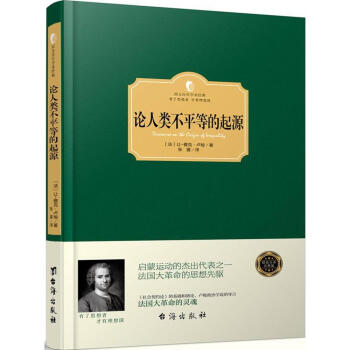

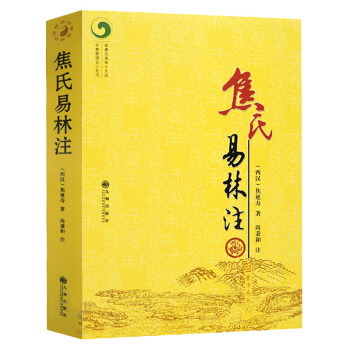


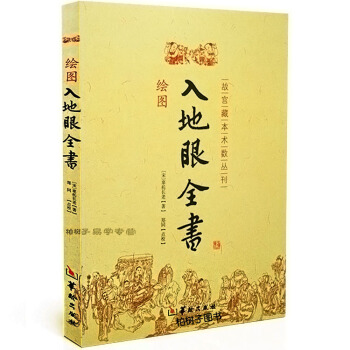
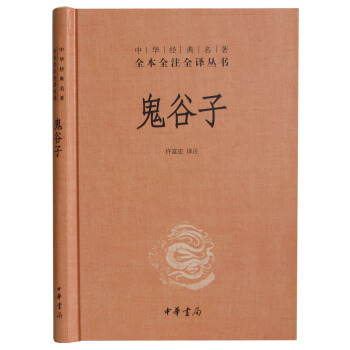
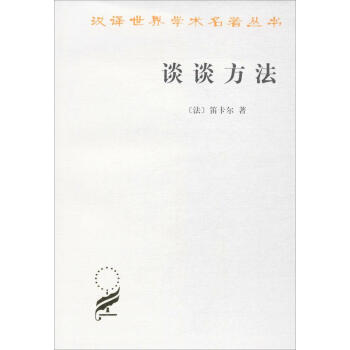

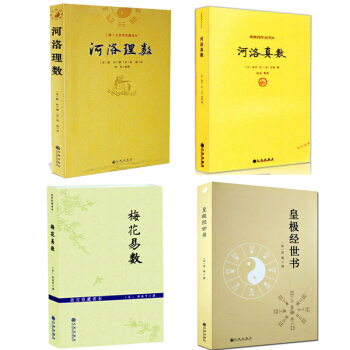
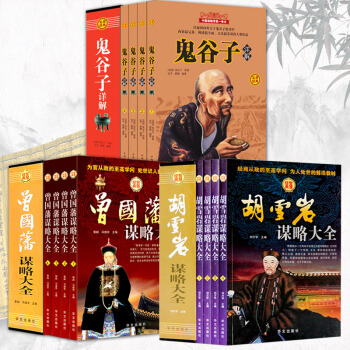
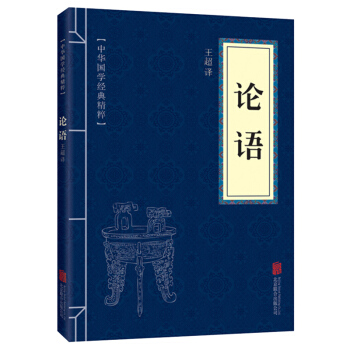

![咖啡与哲学:对话体哲学导论 [Coffee and Philosophy:A Conversational Introduction to Philosophy with Readings] pdf epub mobi 电子书 下载](https://pic.tinynews.org/10075700/4970ee33-a7e2-484a-9d31-de5afcfda0a8.jpg)
